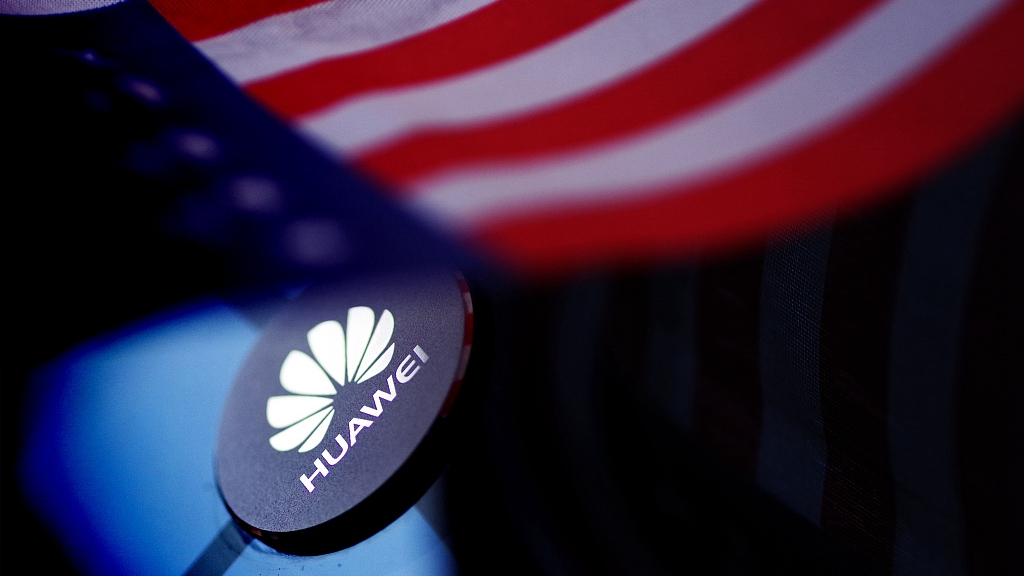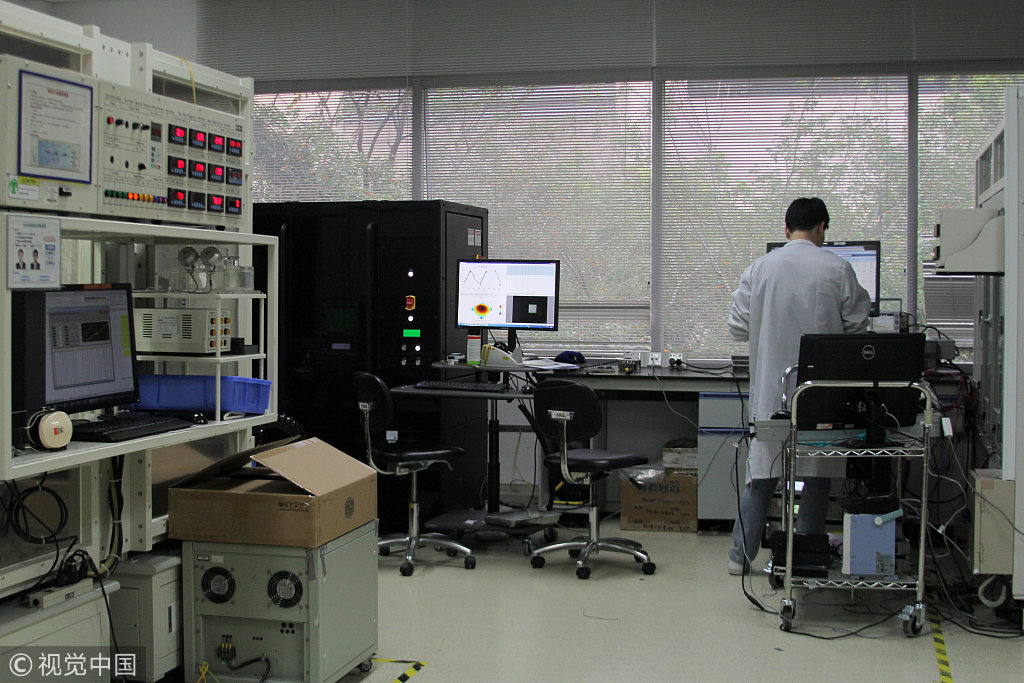
Opinion
17:43, 07-Mar-2019
Huawei vs. U.S., a great challenge
Li Zheng

Editor's note: Li Zheng is an associate research fellow at the China Institutes of Contemporary International Relations, Institute of American Studies, and the director of the American Security Center, Institute of American Studies. The article reflects the author's opinion, and not necessarily the views of CGTN.
On March 7, Huawei held a foreign media press conference at its headquarters in Shenzhen, announcing that it would sue the U.S. government for a number of reasons and safeguard its legitimate rights and interests. The 889 clause of the U.S. National Defense Authorization Act of 2018 is the focus of Huawei's lawsuit. Huawei believes that the clause is suspected of being a bill of attainder and violating the U.S. Constitution.
After a series of unfair treatments by the U.S. government and its law enforcement agencies, Huawei has finally chosen to fight back. This is kind of self-defense in desperation. Huawei has chosen to directly challenge the U.S. government's discriminatory practices in court.

A Huawei logo is pictured at the headquarters of the Chinese telecommunications equipment and smartphone maker in Shenzhen, Guangdong Province, China, March 6, 2019. /VCG Photo
A Huawei logo is pictured at the headquarters of the Chinese telecommunications equipment and smartphone maker in Shenzhen, Guangdong Province, China, March 6, 2019. /VCG Photo
Former U.S. President Lincoln said that he hopes that the U.S. government, which is of the people, by the people and for the people, shall not perish from the earth. The rights of the people are supreme and the government should not establish an act of a legislature declaring a person or group of persons guilty of some crime and punishing them, without a trial, which is referred to as the Bill of Attainder (BoA) and reflects the spirit of due process that is enshrined in the US Constitution.
The 889 clause of the National Defense Authorization Act does not provide any legal procedures or remedies. In fact, this is a ruling without a trial. The greater risk of this clause is the establishment of a precedent for Congress to directly intervene in commercial competition, depriving American consumers of the right to choose Huawei. Such clauses may have a window-breaking effect, and the Congress may introduce more similarly restrictive legislative measures to weaken U.S. support for free trade.
Therefore, Huawei sued the U.S. government not only to protect its own rights, but also to maintain the traditional business rules of the U.S. Obviously, it is an impossible task to sue the U.S. government for violating the constitution in the U.S., but Huawei will not give up this most reasonable defense.
The New York Times believes that Huawei's defense strategy is quite accurate and is likely to be partially supported by the judge. However, it is difficult for the court to fully support the grounds of the lawsuit because the overthrow of the national defense law will touch the foundation of the legitimacy of Congress.
The greater significance of this challenge is outside the courtroom. Huawei hopes to change the prejudice of American public opinion toward Chinese companies.
One of the prejudices is that Chinese companies serve the interests of the Chinese government. Foreign media are concerned that Huawei's prosecution of the U.S. government is just before China and the U.S. are about to complete trade negotiations.

A researcher works at a laboratory inside the headquarters of the Chinese telecommunications equipment and smartphone maker Huawei in Shenzhen, Guangdong Province, China, March 6, 2019. /VCG Photo
A researcher works at a laboratory inside the headquarters of the Chinese telecommunications equipment and smartphone maker Huawei in Shenzhen, Guangdong Province, China, March 6, 2019. /VCG Photo
The prosecution is likely to intensify the disputes between Huawei and the U.S., and to some extent affect the negotiations. Many foreign observers believed that Huawei would not want to do that during this period considering the ongoing trade talks between the two countries and the fact that Huawei decided to sue the U.S. government at this point proves that the Chinese tech giant, like American companies, is an independent business entity, mainly based on the interests of the company to make decisions.
Another prejudice is that Chinese companies tend to resort to government protectionist measures rather than legal means to protect their own rights. It is not the first time that Huawei has used legal means to solve a problem.
Prior to this, Huawei had sued the U.S. IDC patent standard monopoly and also sued Samsung for patent infringement. Both cases ended in Huawei's victory. In recent years, Chinese companies have actively initiated rights defense litigation in the international arena. In 2012, Sany Industry also brought the U.S. government to court and demanded that the U.S. government's mandatory ruling be overturned. The case ended with a settlement between the two parties.
The final prejudice is that there are security holes in the products of Chinese companies. Huawei claims that there is evidence that U.S. intelligence agencies are trying to launch attacks on Huawei's servers to find evidence of hidden security vulnerabilities in Huawei products.
Huawei believes that since the U.S. government prohibits Huawei from entering the U.S. market on the grounds of security risks, the U.S. should publish relevant evidence instead of making decisions based on speculation. Once the lawsuit is accepted, Huawei will ask the U.S. in court to provide reliable evidence to explain its behavior and let the truth be revealed to the world.
(If you want to contribute and have specific expertise, please contact us at opinions@cgtn.com)

SITEMAP
Copyright © 2018 CGTN. Beijing ICP prepared NO.16065310-3
Copyright © 2018 CGTN. Beijing ICP prepared NO.16065310-3